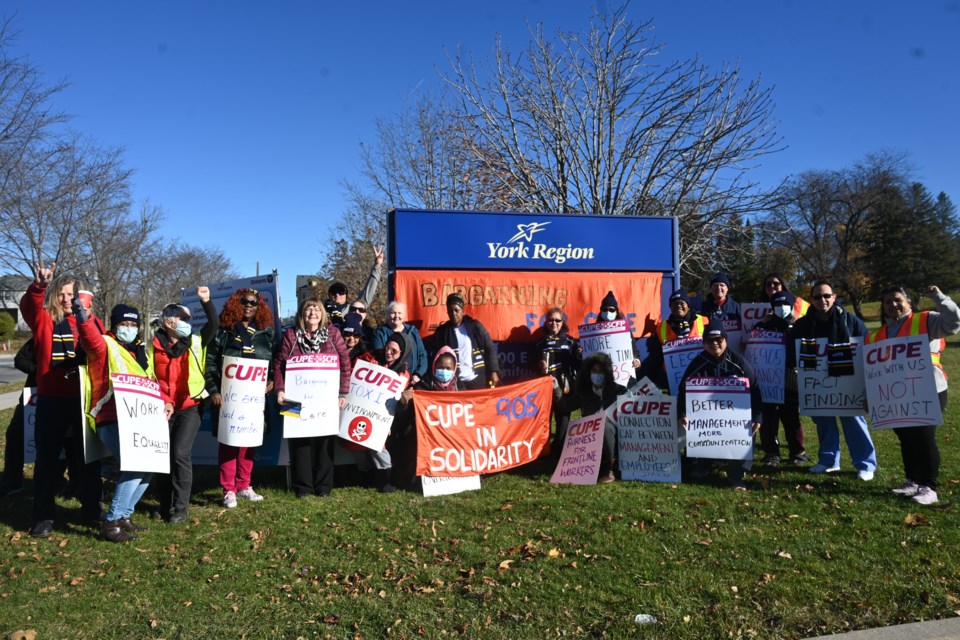Newmarket Health Centre charge nurse Racquel Campbell describes a “toxic work environment” at the long-term care home run by the Regional Municipality of York.
As her union bargains for a new deal, one key issue is addressing what Campbell said are problems with management. She said staff frequently are blamed for systemic issues like short staffing, and big changes are necessary for the home.
“We basically need a whole set of managers who know how to lead properly,” she said. “Managers whose first action is not to reprimand. We need a whole new set of actions in long-term care.”
Members of CUPE Local 905 held an information picket outside the home Nov. 8, demonstrating to send a message to York Region amidst contract talks. Although not a formal job action like a strike, workers off shift chanted and distributed materials regarding their demands. The two sides are now in contract talks, with the collective agreement with the region’s 534 long-term care workers having expired in March 2020 and a new deal delayed by the pandemic.
The union demands included wage increases, which are not specified, improved staff-to-patient ratios, more permanent employment with benefits and better management. The union said there are short-staffing issues, with 75 per cent of staff surveyed saying there are not enough of them to “provide dignified care." The union added that the region is relying too much on part-time or temporary contracts versus full-time employment.
“We really wanted to send a clear message to council,” CUPE 905 president Katherine Grzejszczak said of the picketing effort. “Do what’s fair and do what’s right.”
York Region director of corporate communications Patrick Casey said the region is bargaining “in good faith” and is optimistic that they will reach a “mutually agreeable contract” with the unit. He added the region has already reached agreements with the other workers represented by CUPE Local 905 and the Ontario Nurses’ Association.
“We appreciate and value the efforts of all our employees and thank them for their ongoing commitment to public service during this important process,” he said.
The two sides have also been butting heads over the region’s vaccination mandate, with CUPE 905 filing multiple grievances over regional policies mandating COVID-19 vaccination for staff. Thus far, York Region has been winning those legal battles and has stood by its mandate.
Regardless of the negotiations to come, long-term health workers do not have a right to strike, Grzejszczak said. She said failure to reach a deal would mean arbitration, but the union hopes to avoid that.
“We know that long-term care workers don’t do well through that process,” she said. “We would rather negotiate that deal with York directly, but we need council to step up and recognize they’re responsible, at the end of the day, for what happens in these facilities.”
She further said that their long-term care workers have told the union “they feel like they’re not being treated like human beings” in the workplace, and that stands to impact resident care.
Campbell, who is on the bargaining unit, said they expect a tough negotiation ahead and that York Region will stand its ground.
“As a union, we have to stand strong and stand in solidarity to achieve what we want, as far as better wages for workers, better working conditions and better, healthier work life.”
